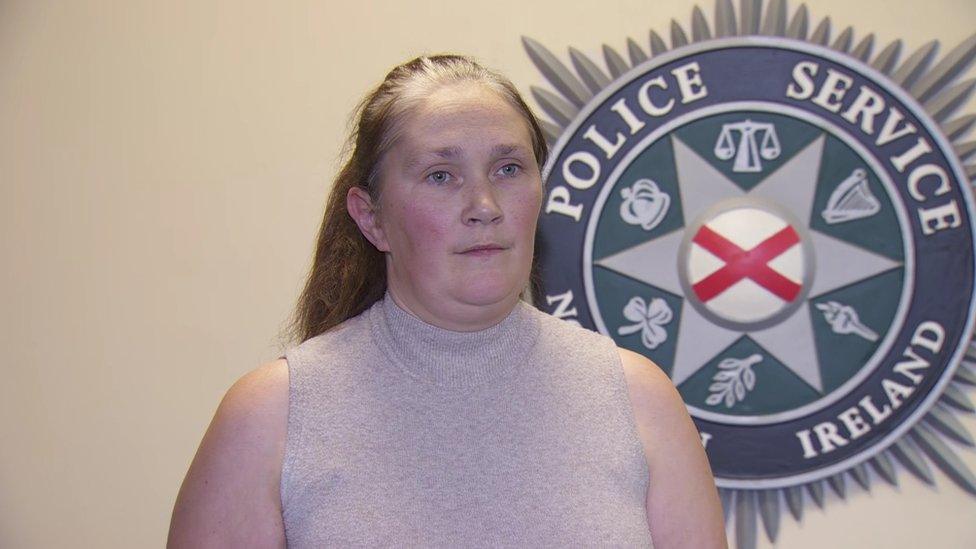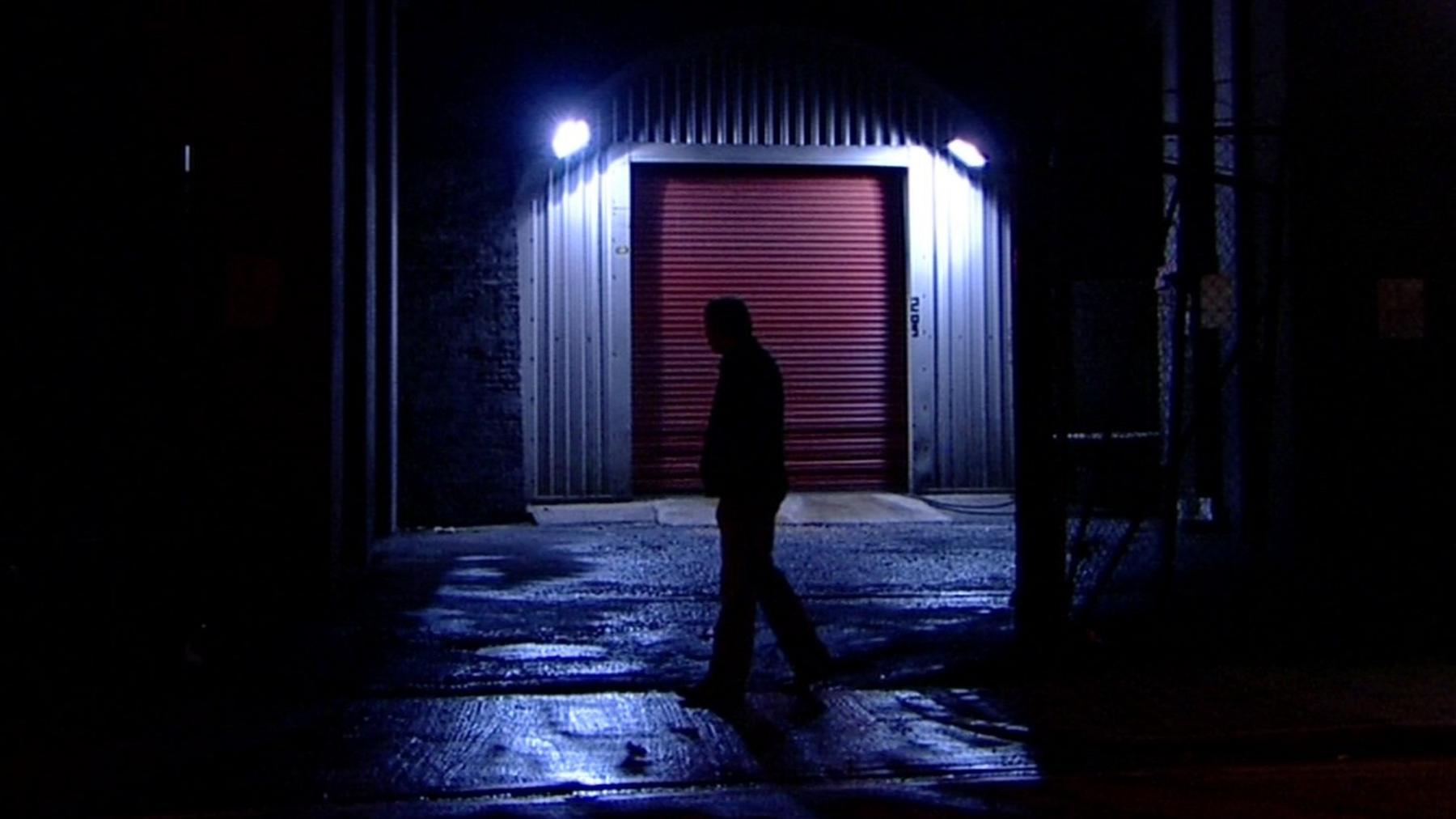Stalking: New orders aim to better protect victims
- Published

Further police powers to tackle stalking behaviours in Northern Ireland have come into effect.
Stalking Protections Orders (SPOs) are said to be an important development in helping to better protect victims or anyone connected with them.
The orders can ban an offender from contacting someone on social media and stop them from being within a certain distance of a their home or workplace.
It is a criminal offence to breach the terms of the new orders.
The Protection from Stalking Act NI 2022 brought Northern Ireland in line with other parts of the UK.
Thursday's new orders are the final piece of that legislation.
Since the legislation was introduced in April 2022, police have arrested 230 alleged stalkers and charged 119 people.
Convictions for the most serious offences carry a penalty of up to 10 years in prison.

What are the new stalking orders?
The new orders give the police the ability to set boundaries by implementing specific SPOs to stop the escalation of stalking.
Subjects can be prohibited from contacting the named person on the order.
This includes contact in person, by phone call, letters, emails, messages and by social media.
The order can prohibit subjects from publishing material, or making reference to material already published, directly or indirectly linked to the victim.
Subjects can also be banned from entering certain areas, for example where the victim works, usual routes taken or where they walk their children to school.
The order also allows police officers to access the alleged stalker's home to conduct risk assessments or if they have no fixed address they must attend a police station every week.

An order can last for a minimum of two years and breaching the order is a criminal offence punishable by up to five years imprisonment.
The Police Service of Northern Ireland said red flags for a stalker include:
Regularly following someone and tracking their movements
Repeatedly going uninvited to their home or workplace
Checking someone's internet use, email or other communications
Hanging around somewhere they know the person often visits
Interfering with their property
Watching or spying on someone
Identity theft (buying things in someone's name)

Det Supt Lindsay Fisher said 5,000 officers and staff are trained in the PSNI to recognise and respond to stalking allegations
Det Supt Lindsay Fisher said the orders represented "another tool in our armour to protect victims from this debilitating and dangerous crime".
"We now have 5,000 officers and staff trained to recognise and respond and that they take all reports seriously," she said.
"I think many people when they hear the word 'stalking' will think of someone lurking in the shadows.
"Stalking can actually take many forms and can be online as well as in person.
"It is a pattern of behaviours that is fixated, obsessive, unwanted and repeated."
Police can apply to the courts
Richard Pengelly, Permanent Secretary at the Department of Justice, said stalking could have a "devastating impact on victims".
"This new measure will offer protection for victims of stalking from the very start of an investigation," he said.
"Importantly, the onus is taken away from the victim to apply for these orders as the police will apply directly to the courts."
Women's Aid NI also welcomed the new orders and encouraged victims to come forward.
"We are very clear of the links between stalking, harassment and domestic abuse especially when a woman makes a decision to leave a coercively controlling relationship," they said in a statement.
"We would encourage any woman to contact the PSNI or reach out for support through Women's Aid."
- Published24 April 2023

- Published22 February 2022
